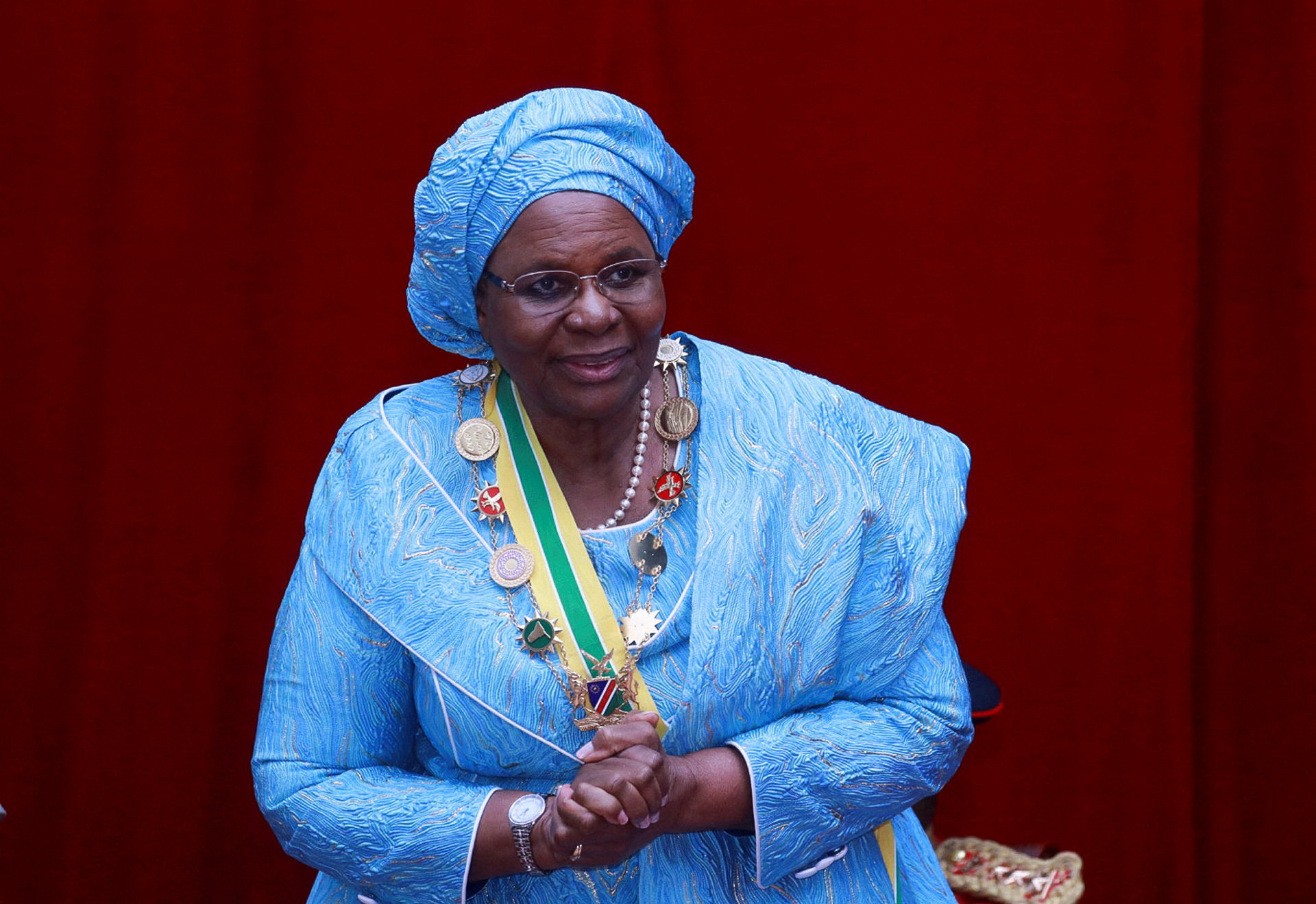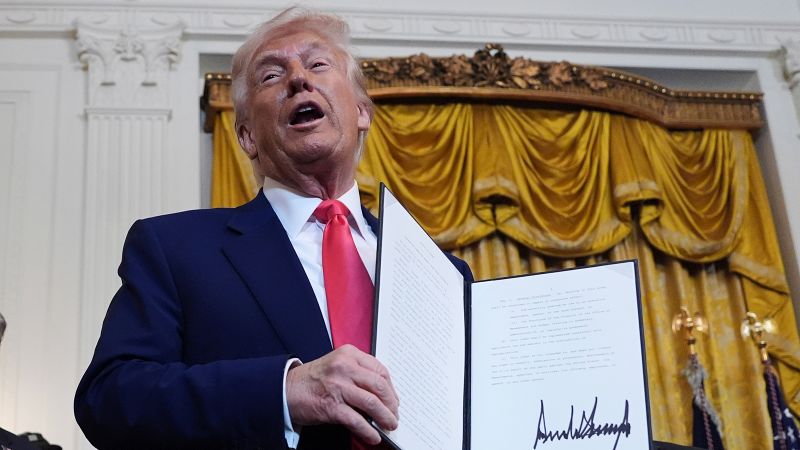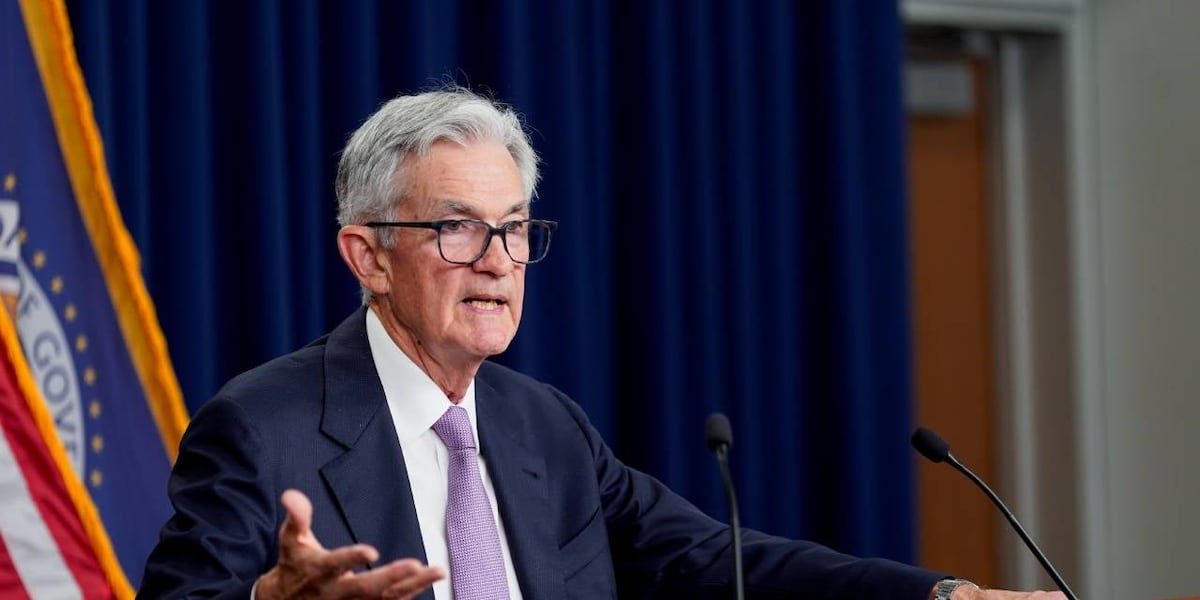Historic Moment: Netumbo Nandi-Ndaitwah Shatters Glass Ceiling as Namibia's Pioneering Female President
Politics
2025-03-21 12:36:19Content

In a momentous transition of leadership, Namibia celebrated its 35th year of independence with a powerful symbolic handover of power. Hage Geingob's long-serving deputy, Mbumba, gracefully passed the presidential torch to Nandi-Ndaitwah during a stirring ceremony that marked both a national milestone and a significant political transformation.
The event, rich with patriotic symbolism, highlighted Namibia's democratic maturity as one leader respectfully stepped aside for another. Against the backdrop of the country's independence day celebrations, the leadership transition underscored the nation's commitment to peaceful political succession and constitutional governance.
Nandi-Ndaitwah, stepping into the role with a wealth of political experience, inherits a nation proud of its hard-won independence and optimistic about its future. The ceremonial handover represents not just a change in leadership, but a continuation of Namibia's journey of progress and national unity since gaining independence in 1990.
As flags waved and dignitaries gathered, the moment captured the essence of Namibia's democratic spirit - a smooth, dignified transfer of power that reflects the country's political stability and democratic ideals.
Namibia's Democratic Transition: A Landmark Moment in African Political Evolution
In the heart of southwestern Africa, a profound political transformation is unfolding as Namibia marks a significant milestone in its democratic journey. The peaceful transfer of power represents more than just a routine governmental transition; it embodies the nation's commitment to democratic principles and institutional stability that have defined its post-independence trajectory.Power Shifts and National Resilience: Namibia's Continuing Democratic Narrative
Historical Context of Namibian Political Leadership
Namibia's political landscape has been characterized by a remarkable continuity of leadership since gaining independence in 1990. The current transition symbolizes a nuanced evolution of governance, reflecting the nation's mature democratic processes. Unlike many African nations plagued by political instability, Namibia has consistently demonstrated a commitment to peaceful political transitions that respect constitutional frameworks and national unity. The outgoing leadership's decision to facilitate a smooth power transfer highlights the depth of institutional strength embedded within Namibia's political system. This approach stands in stark contrast to numerous regional counterparts where leadership changes often trigger political tensions or potential conflicts.Significance of Generational Political Transformation
The leadership transition represents more than a mere administrative change; it signifies a generational shift in Namibian political consciousness. Younger political leaders are gradually assuming positions of national responsibility, bringing fresh perspectives and contemporary approaches to governance. This transition reflects a broader trend of institutional renewal, where experienced political veterans strategically mentor emerging leadership cadres. The seamless nature of this power transfer underscores the robust political education and mentorship programs that have been cultivated within Namibia's political ecosystem.Constitutional Mechanisms and Democratic Integrity
Namibia's constitutional framework has been instrumental in ensuring transparent and legitimate leadership transitions. The country's legal mechanisms provide clear guidelines for power transfers, minimizing potential political uncertainties. The ceremonial timing coinciding with the nation's 35th independence anniversary adds symbolic weight to the transition. It represents a moment of collective reflection on the country's democratic journey, celebrating both past achievements and future potential.Regional and Continental Implications
Namibia's approach to political leadership succession serves as a compelling model for other African nations. By demonstrating a commitment to democratic principles, transparent governance, and peaceful transitions, the country reinforces its reputation as a stable and progressive African democracy. The transition sends a powerful message about the potential for democratic maturity in post-colonial African states. It challenges prevailing narratives about political instability and showcases the potential for institutional resilience and democratic consolidation.Economic and Social Dimensions of Political Transition
Beyond political symbolism, leadership transitions in Namibia carry significant economic and social implications. The continuity of governance approaches ensures policy stability, which is crucial for attracting international investments and maintaining socio-economic momentum. The incoming leadership inherits a complex landscape of developmental challenges and opportunities, requiring strategic vision and adaptive governance approaches. Balancing economic development, social equity, and national unity will be critical priorities in the next phase of Namibia's national journey.RELATED NEWS
Politics

Trade Tactics: Trump Signals Openness to Custom Tariff Negotiations as Global Leaders Vie for Favor
2025-04-09 00:29:43
Politics

Crypto in Chief: Biden's Bold Plan to Reshape Tax Strategy with Digital Currency Insights
2025-03-03 23:18:55






